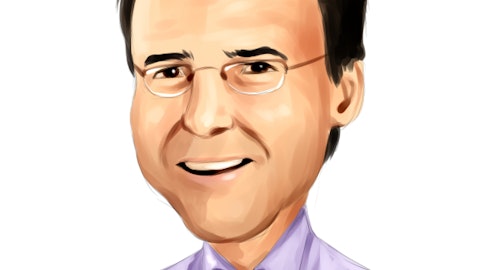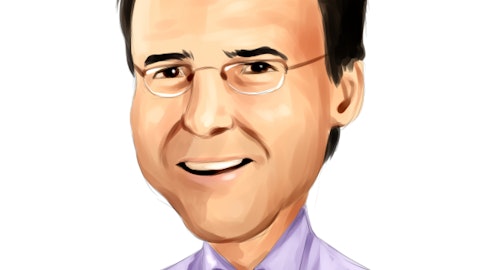Now, having said that, we’re already internally doing studies on the impact of reporting requirements, the capital requirements, the technology everything that’s going to be impacted and the regulatory expectations, which do change, when you cross a 100 billion, so we have both inside and outside how we’ve been hiring some people, and this is kind of 5 years in advance. So, we’re not — we’re not taking it for granted. We know we’ll grow, but as you said, almost a 100 billion became the old 500 billion before they changed the rule and then 250 billion. So, it has brought a lot of those rules down for significantly higher heavy — higher lift. But I think right now that’s in the future for us, so always.
Paul Shoukry: And just to add one thing to that timeline, one of the reasons it will be we expect to be around that long is because one of the things we did during COVID is really accommodated client cash balances on the balance sheet to the securities portfolio. And so, we expect over the next year, for example, for a lot of the Bank’s loan growth to be essentially funded with securities that mature out of that portfolio, so you don’t get as much net growth from the loan growth because it’s a repositioning of those assets.
Paul Reilly: Thankful. That’s a good clarification, because we still expect to grow the bank loan portfolio, so but it’s just as being funded on balance sheet and off balance sheets.
Michael Cyprys: Great. And just a follow-up on that point, as banks that are impacted by the rules, either pullback of certain areas, or reprice certain products, how do you think about the opportunities set for you guys to step in given that the rules won’t apply for you for many years? Where do you see the biggest opportunity set for your capital markets business or more broadly, from these rules impacting a lot of banks?
Paul Reilly: I think if you look at acquiring capital markets businesses, or fixed income businesses, or asset management businesses really don’t significantly impact our asset size. So, what would really impact is acquiring a bank because you’re acquiring balance sheet. Those businesses, especially the M&A, fixed income, like even today we operate. When Morgan Keegan joined us seven or eight years ago, we had a beta of inventory database and inventory today, we have less, we’ve operated well under the inventory. So, I don’t — we think there’s a lot of room to acquire a lot of business, those businesses in that space, without really altering trajectory and talked about $200 billion, it’s the banking side that impacts the balance sheet, really. That’s not our focus.
Michael Cyprys: Okay, thank you.
Operator: This concludes our Q&A session. I will now turn the call back to Paul Reilly for closing remarks.
Paul Reilly: So, first, I appreciate the time. It’s been really outside the kind of a regulatory charge, it would have been a really outstanding quarter that still is a very good quarter. And so, we’re focused still going into an uncertain market. But we’ve always been in our business have outperformed because of our capital and cash. And especially in down markets, be nice to be enough capital markets and interest rates to come in and then it’ll be kind of an easy year, but we always assume we have to work for it every year. Market is competitive. So, we’re just doing what we’ve done. We’ve been managing expenses. A lot of people say what are you going to do to manage expenses? We have been doing that especially over the last few quarters. And plan to continue to do that until, we can see growth to support those. So, appreciate you joining the call and all the time you spent with us, and we’ll talk to you soon.
Operator: This concludes today’s conference call. Thank you for your participation. You may now disconnect.
Follow Raymond James Financial Inc (NYSE:RJF)
Follow Raymond James Financial Inc (NYSE:RJF)
Receive real-time insider trading and news alerts





